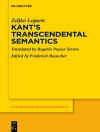Habermas describes Knowledge and Human Interests as an
attempt to reconstruct the prehistory of modern positivism with the
intention of analysing the connections between knowledge and human
interests. Convinced of the increasing historical and social
importance of the natural and behavioural sciences, Habermas makes
clear how crucial it is to understand the central meanings and
justifications of these sciences. He argues that for too long the
relationship between philosophy and science has been distorted.
In this extraordinarily wide-ranging book, Habermas examines the
principal positions of modern philosophy – Kantianism, Marxism,
positivism, pragmatism, hermeneutics, the philosophy of science,
linguistic philosophy and phenomenology – to lay bare the structure
of the processes of enquiry that determine the meaning and the
validity of all our statements which claim objectivity.
This edition contains a postscript written by Habermas for the
second German edition of Knowledge and Human Interests.
Mục lục
Preface.
Translator’s Note.
Part I: The Crisis of the Critique of Knowledge.
1. Hegel’s Critique of Kant:.
Radicalization or Abolition of the Theory of Knowledge.
2. Marx’s Metacritique of Hegel:.
Synthesis Through Social Labour.
3. The Idea of the Theory of Knowledge as Social
Theory..
Part II: Positivism, Pragmatism, Historicism.
4. Comte and Mach: .
The Intention of Early Positivism.
5. Peirce’s Logic of Inquiry:.
The Dilemma of a Scholastic Realism Restored by the Logic of
Language.
6. The Self-Reflection of the Natural Sciences:.
The Pragmatist Critique of Meaning.
7. Dilthey’s Theory of Understanding Expression:.
Ego Identity and Linguistic Communication.
8. The Self-Reflection of the Cultural Sciences:.
The Historicist Critique of Meaning.
Part III: Critique as the Unity of Knowledge and
Interest.
9. Reason and Interest:.
Retrospect on Kant and Fichte.
10. Self-Reflection as Science:.
Freud’s Psychoanalytic Critique of Meaning.
11. The Scientistic Self-misunderstanding of
Meta-psychology: .
On the Logic of General Interpretation.
12. Psychoanalysis and Social Theory:.
Nieqzsche’s Reduction of Cognitive Interests.
Appendix.
Knowledge and Human Interests: A General Perspective.
Jurgen Habermas: A Postscript.
Index.
Giới thiệu về tác giả
Jürgen Habermas is a German philosopher and sociologist in the tradition of critical theory and pragmatism. He is perhaps best known for his theories on communicative rationality and the public sphere. In 2014, Prospect readers chose Habermas as one of their favourites among the ‘world’s leading thinkers’.












